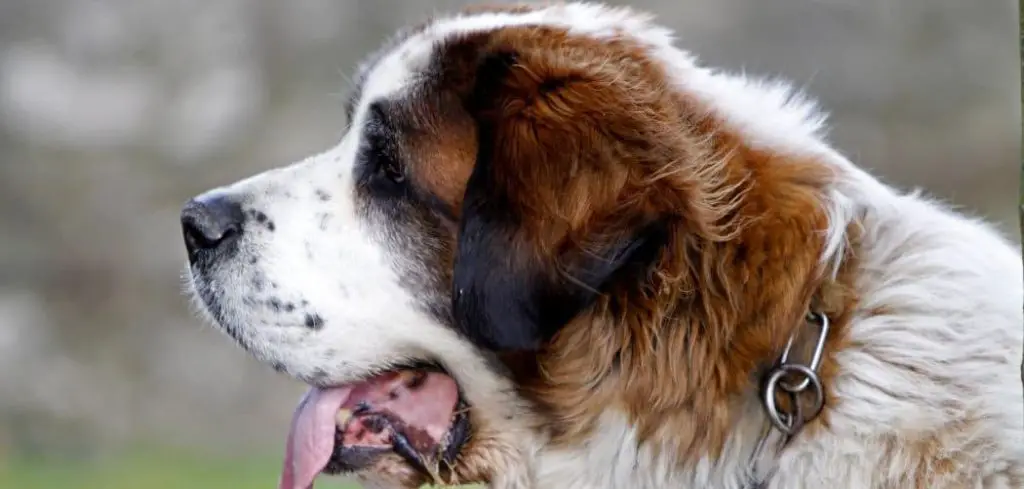Dogs occasionally burp just like humans do. But when your dog is burping a lot and not eating, it often points to a deeper issue in the digestive system.
Frequent burping, especially when paired with appetite loss, can signal discomfort, bloating, inflammation, or even a more serious medical condition that needs attention.
We outline what excessive burping in dogs really means, what may be causing them to avoid food, and what steps you can take to help.
Dog Burping a Lot and Not Eating: Why It Happens
A dog burping a lot and not eating may be experiencing gastrointestinal upset, acid reflux, gas buildup, bloating, food intolerance, swallowing air, pancreatitis, or a more serious issue like gastric dilation volvulus (GDV).
These problems can create pressure, nausea, or pain that suppresses appetite and trigger constant belching as the body tries to release trapped gas.

Dog Burping a Lot and Not Eating: Common Causes
1. Gastric Dilatation (Bloating)
Bloat occurs when a dog’s stomach fills with gas or fluid and begins to expand.
Even in mild cases (not torsion-related), the excess pressure causes frequent burping and can reduce appetite.
Signs include:
Burping or belching multiple times
A swollen or firm abdomen
Refusal to eat or drink
Restlessness, pacing, or whining
If the condition progresses to Gastric Dilatation-Volvulus (GDV)—where the stomach twists—it becomes a life-threatening emergency. Deep-chested breeds like Great Danes, German Shepherds, and Boxers are especially at risk.
2. Swallowing Excess Air (Aerophagia)
Dogs that eat or drink too quickly can swallow large amounts of air, leading to bloating, burping, and even nausea.
This often happens in:
Dogs who gobble food rapidly
Brachycephalic breeds (like Bulldogs or Pugs) with short snouts
Anxious eaters who gulp food under stress
The swallowed air builds up in the stomach, causing frequent belching and stomach discomfort, which in turn reduces your dog’s desire to eat.
Related: Dog vomiting and not eating (Causes and when to worry)
3. Acid Reflux or Gastroesophageal Reflux Disease (GERD)
When stomach acid flows backward into the esophagus, it can irritate your dog’s digestive tract, leading to:
Repeated burping or gulping
Refusal to eat or signs of nausea
Lip licking and throat swallowing
Vomiting bile or regurgitation
GERD is particularly common in older dogs or those with sensitive stomachs. Over time, acid damage can reduce appetite and even cause esophageal inflammation.
4. Indigestion or Gastritis
Dogs with an inflamed stomach lining (gastritis) often burp to relieve pressure. The condition can stem from eating spoiled food, dietary changes, stress, or infections.
Signs may include:
Loss of appetite
Gurgling stomach sounds
Burping or passing gas
Nausea, vomiting, or dry heaving
The discomfort causes dogs to avoid meals, and the excess gas in the gut leads to persistent burping or hiccup-like episodes.
Related: Dog diarrhea and not eating (Causes and when to worry)
5. Food Intolerance or Sensitivity
Dogs with food allergies or intolerance may experience excessive gas and digestive upset. Their body struggles to break down certain ingredients, leading to:
Frequent belching or flatulence
Poor appetite or skipping meals
Diarrhea or inconsistent stools
Itchy skin or ear infections (with allergies)
Common culprits include dairy, wheat, soy, chicken, and beef. Identifying the trigger often requires switching to a limited-ingredient or hypoallergenic diet under vet guidance.
6. Pancreatitis
Pancreatitis—inflammation of the pancreas—can cause digestive enzymes to leak into the surrounding tissue, leading to pain and nausea. Burping occurs due to trapped gas and discomfort, and dogs may refuse to eat altogether.
Watch for:
Sudden onset of burping and vomiting
Tender belly, restlessness, or “prayer position”
Lethargy and dehydration
Reluctance to move or lie on the stomach
Pancreatitis can be triggered by fatty foods or underlying metabolic disorders. It requires prompt veterinary treatment.
7. Gastrointestinal Parasites
Worms or other parasites can irritate the GI tract and lead to:
Intermittent burping or gassiness
Decreased appetite
Vomiting or loose stools
Weight loss or dull coat
Roundworms, hookworms, and giardia are common in puppies and dogs that frequent parks or kennels. A fecal exam can confirm the presence of parasites and guide treatment.
What to Do If Your Dog Is Burping a Lot and Not Eating
If your dog seems stable (no vomiting, pain, or collapse), try these home remedies for 24 hours:
Offer smaller, frequent meals to reduce stomach pressure
Avoid fatty or spicy treats
Try a bland diet like boiled rice and chicken
Use a slow feeder bowl to minimize air swallowing
Keep your dog calm and upright after meals
You can also offer small ice cubes to keep them hydrated without overwhelming their stomach.
When to Call or Visit Your Vet
Contact your vet if your dog:
Burps frequently for more than a day
Refuses all food for over 24 hours
Has a swollen or painful abdomen
Is vomiting, shaking, or pacing
Belongs to a high-risk breed for bloat or GDV
Your vet may run abdominal x-rays, blood tests, or ultrasounds to rule out serious conditions like obstruction, inflammation, or twisted stomach.
Key Takeaway
If your dog is burping a lot and not eating, they’re likely experiencing discomfort that needs your attention.
Whether it’s caused by gas, food issues, acid reflux, or something more serious, don’t ignore it—especially if your dog’s behavior continues to decline.
Early care, dietary changes, and a conversation with your vet can make all the difference in your dog’s comfort and recovery.
You know your dog best—trust your instincts and get the help they need to feel better.
